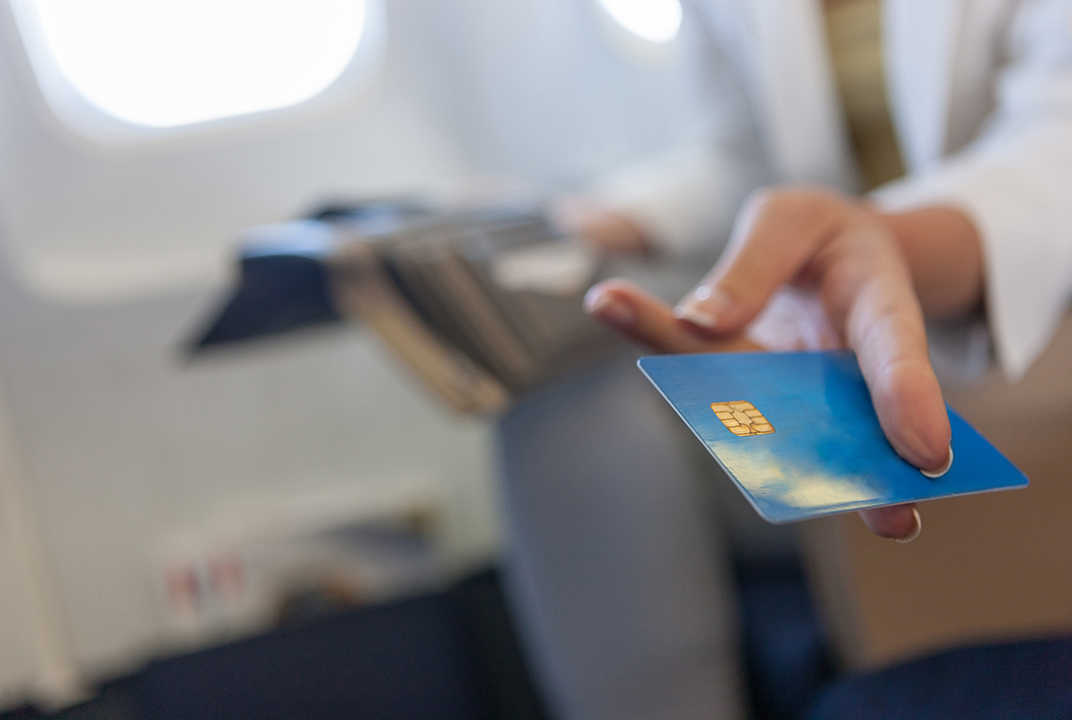Young passengers’ purchasing habits present an opportunity to transform shopping in the sky
Generation Z spend a total of $3.6 billion annually on services and items in the weeks before travel and upon arrival at their destination
7 in 10 would make purchases for their trip on the flight instead if Wi-Fi was available
New research by the London School of Economics and Political Science (LSE) predicts that the ‘last-minute’ generation will make holiday purchases worth $26 on the plane by 2028
Generation Z[1] (Gen Z) are last-minute spenders when planning trips, presenting an opportunity for airlines to revolutionise inflight e-commerce and take revenue from elsewhere in the customer journey. New research from the London School of Economics and Political Science (LSE), commissioned by Inmarsat Aviation, suggests that by 2028, Gen Z passengers will spend an average of $26 on travel purchases while on their flight.
Generation Z is forecast to become the largest group of airline flyers globally within the next decade, with 1.2 billion flying each year by 2028[2]. The LSE estimates that this consumer group currently spends a collective $3.6 billion in items and services in the weeks leading up to a trip and upon arrival at their destination. These findings underscore a significant opportunity for airlines to shift spending onboard and to take a proportion of the revenue with an e-commerce model that supports the ‘last-minute’ approach of today’s ‘digital-first’ passengers.
The research analysed purchasing decisions made during three key phases of the customer journey before a holiday: more than a week before; in the days before; and upon arrival. It finds that Gen Z is the most likely of all generations to delay buying products and services for their trip until the days before they fly.
While currently only one in ten passengers make an inflight duty-free purchase when they fly[3], there is a significant opportunity for airlines to monetise the growing trend for last-minute spending. According to the LSE, 70% of Millennials and Gen Z passengers indicate that they would delay arrangements for their trip until their flight if they knew that a reliable Wi-Fi connection would be available, and the necessary delivery infrastructure was in place[4].
Dr Alexander Grous (B. Ec, MBA, M.Com, MA, PhD.), Department of Media and Communications (LSE) and author of the research, said: “Having grown up in a digital world with connectivity at their fingertips, more often than not Gen Z make last minute decisions when it comes to travel planning and preparation. This behavioural shift presents an exciting opportunity for airlines to strike innovative partnerships with global and local retailers that extend the possibilities of inflight spending.”
Philip Balaam, President, Inmarsat Aviation said: “If passengers reject traditional purchase channels in favour of inflight spending to the extent that this suggests in the next decade, the implications for airlines and retailers would be huge. We may be on the verge of a habitual shift in travel spending, much like the movement from offline to online purchasing witnessed on the ground in the last decade.”
Dominic Walters, Vice President, Marketing Communications and Strategy, Inmarsat Aviation said: “Developing a connected infrastructure built for inflight spending will be a win-win for both airlines and passengers, bringing airlines the chance to take a slice of revenue currently spent elsewhere in the customer journey, and saving passengers valuable time before and after their flight. With airlines all over the world already ramping up their connectivity offerings and a growing trend for last-minute spending in younger passenger groups, this is a revolution waiting to happen.”
[1] The LSE defines Generation Z as born between 1997 – 2012
[2] Sky High Economics – Chapter Three: Capitalising on Changing Passenger Behaviour in a Connected World
[4] LSE Interviews 2017-2019
Further Information
About Inmarsat
Inmarsat is the world leader in global, mobile satellite communications. It owns and operates the world’s most diverse global portfolio of mobile telecommunications satellite networks, and holds a multi-layered, global spectrum portfolio, covering L-band, Ka-band and S-band, enabling unparalleled breadth and diversity in the solutions it provides. Inmarsat’s long-established global distribution network includes not only the world’s leading channel partners but also its own strong direct retail capabilities, enabling end to end customer service assurance.
The company has an unrivalled track record of operating the world’s most reliable global mobile satellite telecommunications networks, sustaining business and mission critical safety & operational applications for 40 years. It is also a major driving force behind technological innovation in mobile satellite communications, sustaining its leadership through a substantial investment and a powerful network of technology and manufacturing partners.
Inmarsat operates across a diversified portfolio of sectors with the financial resources to fund its business strategy and holds leading positions in the Maritime, Government, Aviation and Enterprise satcoms markets, operating consistently as a trusted, responsive and high-quality partner to its customers across the globe.
For further information, follow us on LinkedIn or on Twitter @InmarsatGlobal.
About the London School of Economics and Political Science (LSE)
The London School of Economics and Political Science (LSE) is one of the foremost social science universities in the world. LSE is a specialist university with an international intake and a global reach. Its research and teaching span the full breadth of the social sciences, from economics, politics and law to sociology, anthropology, accounting and finance. Founded in 1895, the School has an outstanding reputation for academic excellence. 16 Nobel Prize winners have been LSE staff or alumni. The School has a cosmopolitan student body, with around 9,500 full time students from 140 countries. LSE has a staff of over 3,000, with about 46 per cent drawn from countries outside the UK.
Media Enquiries
Jonathan Sinnatt/Matthew Knowles
Inmarsat Corporate Communications
Tel: +44 (0)20 7728 1935/1355
press@inmarsat.com

